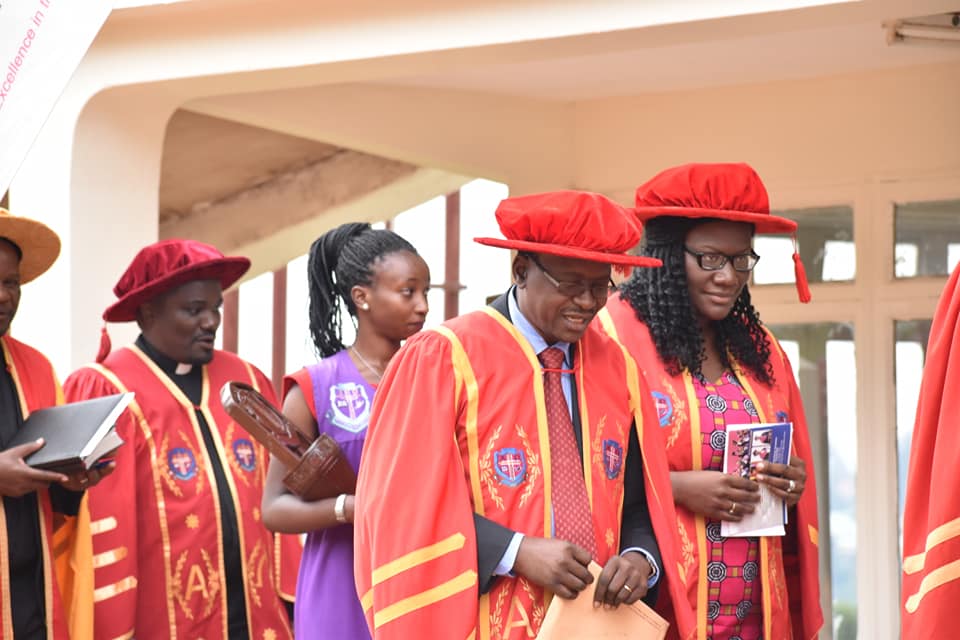By Asenath Were
As many scholars point out, “Education is the passport to the future, for tomorrow belongs to those who prepare for it today.” Malcolm X, and as Benjamin Franklin once said, this investment in yourself will pay you back with interest over your entire lifetime.
However, one may wonder how applicable this is to a Ugandan student, who undergoes levels of education as per the education system, which sum up to a minimum of 19 years of education, but at the end of it all, there are more numbers of desperate job seekers resulting in unemployment.
Four years ago, the Uganda Graduate Volunteer Scheme was officially launched by the United Nations Development Programme (UNDP) together with Uganda’s Ministry of Gender, Labour, and Social Development to help them gain employability skills.
The scheme was to recruit 500 graduates every year, as emphasized by Rosa Malango, the UN Resident Coordinator and UNDP Resident Representative.
The Permanent Secretary Ministry of Gender, Labour, and Social Development Pius Bigirimana called upon employers to embrace the scheme.
“Be men and women of courage. Do whatever you’re going to do within the law to improve productivity and employability,” Bigirimana briefed the scheme beneficiaries.
According to Sudhir Byaruhanga of NTV, it is estimated that over six hundred thousand (600,000) students graduate from universities and other institutions of higher learning in Uganda every year.
He pointed out that some of these students are sponsored by the government or have acquired government-facilitated incentives like study loans, and out of the 13% of graduates who are ready to work as professionals or technicians,only one out of four gets employment.
According to Dr. Joseph Muvawala, the executive director of the National Planning Authority, it is not applicable for the country to have students study on loans with a study structure where graduates take 10 years to get jobs.
“Can we have students that come out of school with loans, with the structure of an economy that takes you 10 years for you to get a job?” Muvawala enquired.
The results provided by the graduate tracer study (GTS) conducted by Sarah Kizza, Omar Egesah, and Betty Enyipu of Uganda Christian University (UCU) in 2015–2016 confirm that most of the respondents took between 7 and 10 months to secure employment after obtaining a degree.
However, the GTS still points out that 8.5% of the 373 UCU graduates of that year were self-employed, meaning that some end up looking for solutions to the problem of unemployment elsewhere, hence resorting to self-employment in an area that is totally outside of what they had studied.
Florence Nakiyinji, Director of Human Resources and Administration at UCU, said that opportunity meets you when you are ready. According to her, a student must have drafted the format of a CV as early as the second year, and as it improves, you just keep adding your achievements.
“Imagine you meet your future employer, and they ask you for your CV, and you are struggling because you do not have one? You can have a very good degree, and it takes you nowhere because you do not have what it takes.” She said.
Jovia Nakimuli, a fresh graduate from UCU with a degree in Human Resource Management, said that the university has indeed tried its best to groom its students for employment.
“It has tried what it can, bringing people who have made it to talk to students, including entrepreneurship as a course unit for my course, offering internship placements to students, and at times retaining some graduates,” she said.
On the other hand, Emmanuel Ainemani, who graduated in October 2022 at UCU with a degree in procurement and logistics, said it is good they have studied, but to him, it is as good as not studying.
“The same years we spent reading books are the same years or more the employees want for experience; shouldn’t universities teach experience instead?” he wondered.
Stella Miremba, who graduated in 2021 from UCU with a bachelor’s in public health, has appreciated UCU for the complete education she got from the university. She says that the different community engagements they had prepared her for the classes.
“We had practicals every semester, and we were required to do internships with organizations that were doing the work we were taught,” said Mirembe.
She adds that this taught them concept development and how to form partnerships, which have helped her survive in a world where there are few jobs. Mirembe has advised the students not to look at getting employed but to strive at starting jobs.
Andrew Ibone, who works with Gudie Leisure Farm as a media manager and who graduated from UCU in 2019 with a bachelor’s in mass communication, says that the skills he got from UCU have helped him navigate the employment world safely.
“We are always encouraged by our lecturers to do research and use up-to-date software, especially in the journalism field, which has helped us in the competitive job market,” said Ibona.
He added that UCU spread its wings in the job market; in most cases, employers have a UCU alumnus, which has helped UCU graduates get jobs.


